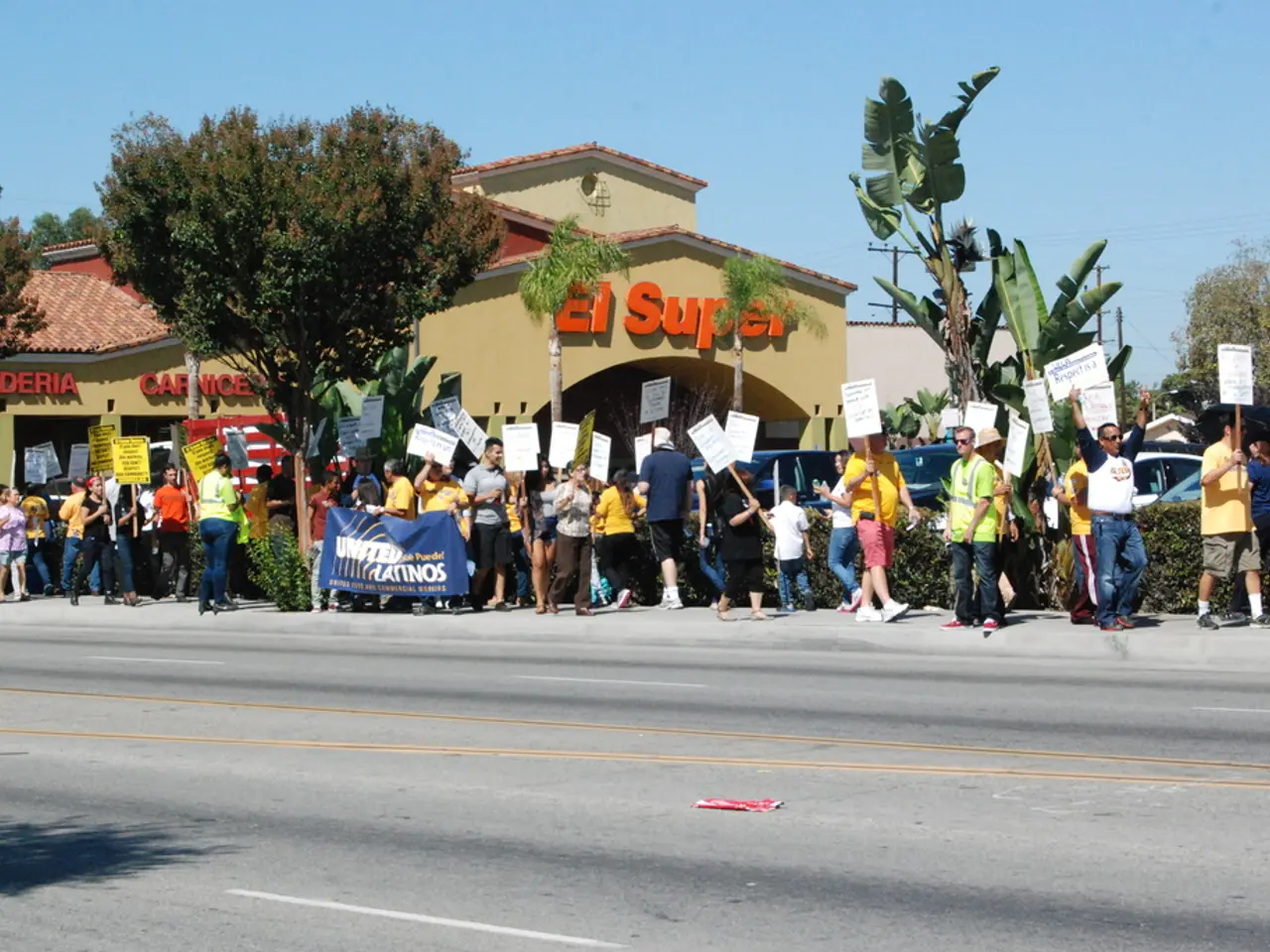Conducting Extensive Analysis for Political Campaigns at the Local Voting Precinct Level
In the modern political landscape, effective campaigns are those that can respond swiftly to local dynamics and mobilize voters systematically. One key approach to achieving this goal is through comprehensive research at the booth level.
Booth-level research is a detailed analysis of voter behavior, demographics, and political trends at the smallest electoral unit. This level of granularity is crucial for guiding campaign strategies and ensuring that resources are allocated efficiently.
Political leaders can leverage various strategies and technologies to conduct thorough booth-level research. One such strategy involves the use of Election Campaign Management Software Platforms, such as Leadtech VIMS, which enable detailed voter profiling and booth-level analysis. These platforms provide real-time tracking of canvassing, volunteer activity, swing zones, and voter sentiment.
Another essential aspect of booth-level research is boosting communication efficiency. Creating WhatsApp groups organized by booth allows for micro-targeted communication among party workers, volunteers, and voters. These groups serve as local hubs for rapid message dissemination, voter mobilization, monitoring, and ground-level feedback.
Personalized messaging, enabled by AI-powered tools, is another key strategy. These tools can send customized video and text messages, including individual voter names, booth numbers, and localized campaign appeals. Bulk messaging engines can deliver verified, multimedia-rich content at scale, tracking open rates and responses to continuously refine outreach efforts.
Data collection via surveys and grievance handling is also vital. Digital modules allow for door-to-door survey data entry at the booth level, capturing voter preferences, concerns, and grievances. Geo-tagging volunteers and survey teams enhances transparency and accountability of field operations, providing actionable feedback for campaign adjustments.
Real-time booth-level predictions and voter profiling can also be achieved through advanced AI-driven platforms. However, campaigns must navigate legal and ethical considerations around data privacy, consent, and election law compliance.
Social media trends can provide additional insights into voter concerns and engagement levels. Understanding the target audience, their motivations, and where they can be found online and offline is essential for a successful political campaign.
Grassroots campaign strategies, identifying key influential people in the area, and staying informed on current events are also vital components of a successful political campaign.
Challenges in conducting booth-level research include incomplete data, voter privacy concerns, and resource limitations. However, the benefits of precise, localized insights far outweigh these challenges. Booth-level research can help choose candidates who align with voter expectations in a specific area, improving campaign efficiency and voter engagement by addressing local issues directly and building trust through targeted campaign efforts.
The future of booth-level research in politics will involve more AI-driven analysis, predictive modeling, and integration with real-time voter feedback. Political parties can use booth-level research for campaign planning by identifying strong and weak areas, focusing resources strategically, and designing targeted outreach programs.
In conclusion, combining technology for precise voter data collection, structured volunteer coordination at the booth level, and personalized multi-channel communication forms the foundation of effective campaign research aimed at winning elections. This approach ensures campaigns respond rapidly to local dynamics and mobilize voters systematically.
- To respond swiftly to local dynamics and systematically mobilize voters, effective campaigns rely on comprehensive research at the booth level.
- Booth-level research involves a detailed analysis of voter behavior, demographics, and political trends at the smallest electoral unit.
- Efficiency in resource allocation is crucial for guiding campaign strategies, which is why detailed voter profiling and booth-level analysis are important.
- Election Campaign Management Software Platforms, like Leadtech VIMS, enable booth-level analysis and provide real-time tracking of canvassing, volunteer activity, swing zones, and voter sentiment.
- WhatsApp groups organized by booth can facilitate micro-targeted communication among party workers, volunteers, and voters.
- AI-powered tools can send personalized video and text messages, using individual voter names, booth numbers, and localized campaign appeals.
- Data collection via door-to-door surveys and grievance handling is vital, with digital modules capturing voter preferences, concerns, and grievances at the booth level.
- Geo-tagging volunteers and survey teams enhances transparency and accountability of field operations, providing actionable feedback for campaign adjustments.
- Advanced AI-driven platforms can offer real-time booth-level predictions and voter profiling, but campaigns must consider data privacy, consent, and election law compliance.
- Social media trends can reveal voter concerns and engagement levels, helping understand the target audience and their online presence.
- Grassroots campaign strategies, identifying key influential people in the area, and staying informed on current events are essential for a successful political campaign.
- Challenges in conducting booth-level research include incomplete data, voter privacy concerns, and resource limitations, but benefits like addressing local issues and building trust outweigh these challenges.
- The future of booth-level research will involve more AI-driven analysis, predictive modeling, and integration with real-time voter feedback.
- Booth-level research can help political parties identify strong and weak areas, strategically focus resources, and design targeted outreach programs.
- By combining technology for precise voter data collection, structured volunteer coordination at the booth level, and personalized multi-channel communication, campaigns can respond rapidly to local dynamics and mobilize voters systematically.
- In addition to politics, such an approach can be beneficial for career development, education-and-self-development, personal-growth, mindfulness, policy-and-legislation, job-search, general-news, crime-and-justice, accidents, fires, learning, goal-setting, lifelong-learning, skills-training, sports, football, nfl, sports-betting, american-football, ncaa-football, sports-analysis, and even in industries like data analytics, services, resources, migration, and car-accidents.




